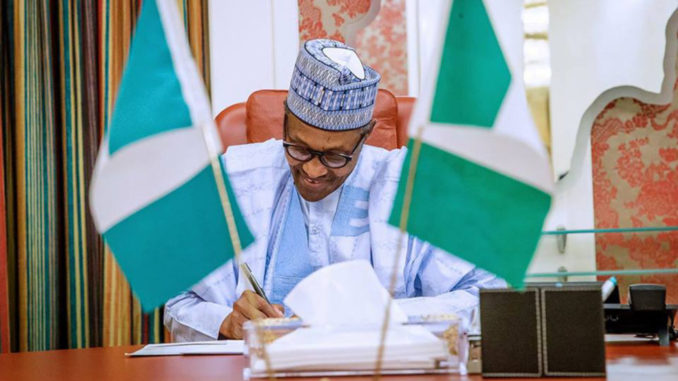
The nation is expected to sing a redemption song today when, or if President Muhammadu Buhari makes good his promise to enhance the majesty of our democracy by signing the Electoral Act Amendment Bill 2022.
Nigeria’s Attorney-General and Minister of Justice, Mr. Abubakar Malami, has been raising some spectre of doubts that the President would ever sign the bill. But the President is expected to swallow vanity and pride, set aside party, personal and Attorney-General’s interests and serve public interest today, to restore the hope of a clean electoral process and elections in 2023.
Earlier in the week, the Special Adviser to the President on Media and Publicity, Femi Adesina, had assured Nigerians that the president was going to sign the Electoral Act Amendment Bill today. If at the end of the day he signs the bill as expected, he would have put to rest all shades of dark thoughts about the general elections coming up next year. If, however, the president withholds his assent, and does not provide justifiable reasons for his action, the National Assembly is constitutionally bound to over-ride the president and give assent.
The president has in the last five years rejected the Electoral Bill five times. The first refusal was due to grammatical concerns. Later, it was legal infelicities in the wording of the bill, thereby causing an embarrassing back and forth that mocked our law-making machinery. Two contentious issues associated with the bill are the provisions for electronic transmission of election results and mandatory direct party primaries. To these issues, different interests have expressed concerns and reservations. Perhaps the faltering in presidential assent to the bill is attributable to perceived interests in the effects of either of the features.
Yet, political leaders and politicians should be reminded that elections demand adequate preparation, careful organisation and are time-bound. President Buhari owes the country a duty by signing the bill, if he is to be faithful to the election timetable. Vacillating the way he does gives a wrong signal to the people. It suggests that there is neither commitment nor urgency on the part of the president to usher in a healthy administration in the next dispensation. There is so much uncertainty that is creating a recipe for instability.
We are strongly convinced that whether or not the president gives assent to the bill, the machinery and modalities for elections are no complex science to warrant this miasma over the bill. There are more fundamental issues about the general elections than the fate of the electoral bill. Concerning the overall management of general elections, the Constitution is very clear in its provision regarding the powers of the Independent National Electoral Commission (INEC).
The law establishing INEC provides residual powers for it to set up its own rules. Section 153 of the Constitution which establishes the electoral umpire as an “Independent National Electoral Commission,” empowers the latter in paragraph.15 of Part 1 of the Third Schedule to, among other things, “organise, undertake and supervise all elections to the offices of the President and Vice-President, the Governor and Deputy Governor of a state and to the membership of the Senate, the House of Representatives and the House of Assembly of each state of the federation…”.
To properly ascertain the independence of INEC, Section 160(1) of the Constitution specifically states that “in the case of the Independent National Electoral Commission, its powers to make its own rules or otherwise regulate its own procedure shall not be subject to the approval or control of the President.” It is clear that the controversial features of the bill purportedly hampering its signing into law are inconsequential to the assent of both the president and the National Assembly since they are clearly the jurisdiction of INEC.
Now, should the National Assembly, being a rubber stamp and a dubious appendage of the Presidency, wavers in invoking its constitutional powers to over-ride the president should the president withhold his assent again, what should be done? The only choice left rather than waiting for Godot is for civil society organisations to embark on a protest on behalf of the people.
Already, the seeming insensitivity of this administration, characterised by the flagrant disregard for law and agreements, obvious confusion owing to policy somersaults as well as poor, insular consultation networks, has caused many to be disenchanted with the state of the country. Patience is wearing out, politicians are touchy, and the people are on edge. The uncertainty around the president’s assent to the Electoral Bill should not get to a point where people begin to heat up the polity by protesting openly. The hangover of the last nationwide protest is still having its toll on the country. Another public walkout is avoidable.
END

Be the first to comment